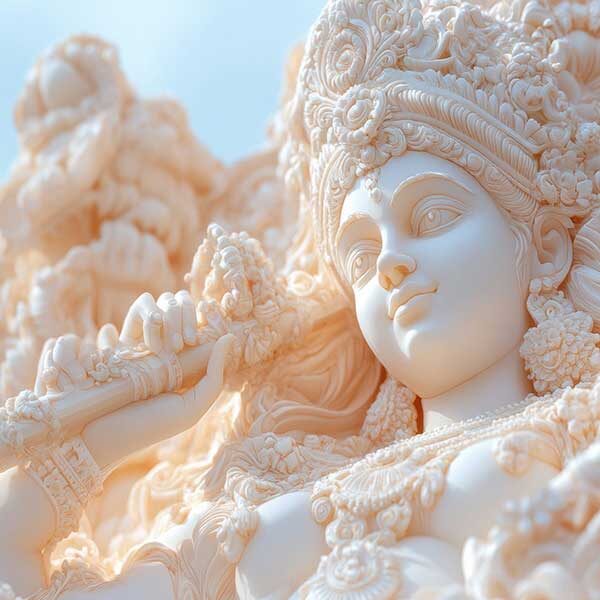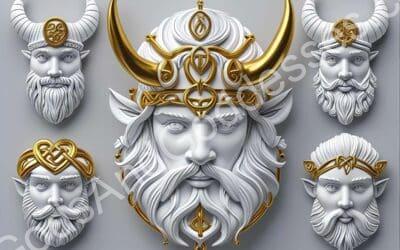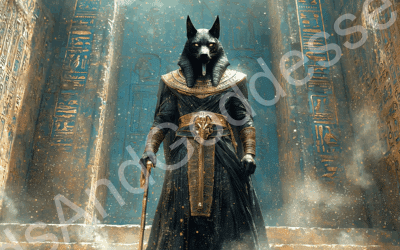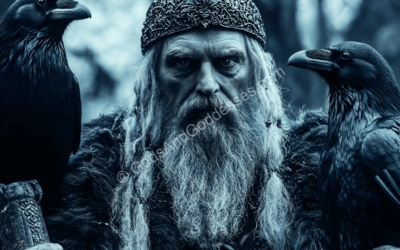Receive Our Newsletter
Resources and reminders to
live your Divine Destiny™
Introduction: Why Gods by Mythology Matter
Looking at gods by mythology reveals both the shared archetypes that unite cultures and the unique stories that make each tradition distinct. Every culture has imagined gods in its own image—deities who reflect the land, the people, and the mysteries of existence.
From the thunder-wielding Norse god Odin to the radiant Greek god Zeus, from the earth-rooted Celtic god Dagda to the sun-sovereign Egyptian god Ra, these figures embody humanity’s search for meaning, justice, and cosmic order.
At GodsAndGoddesses.com, we explore not only individual gods and goddesses but also the pantheons that gave them life—Norse, Greek, Celtic, Egyptian, Japanese, Hindu, and more.
“To trace the gods through their mythologies is to walk the pathways of human imagination—where thunder, sea, and sun became divine.”
Key Takeaways About Gods by Mythology
-
Gods appear across all major mythologies, embodying universal archetypes like creator, warrior, trickster, and protector.
-
Norse gods symbolize strength, fate, and resilience in a harsh northern world.
-
Celtic gods connect deeply to land, fertility, and cycles of life and death.
-
Greek gods of Olympus reveal drama, passion, and human flaws writ divine.
-
Egyptian gods express balance between chaos and order, life and death, sky and underworld.
-
Exploring gods by mythology uncovers both cross-cultural patterns and unique spiritual worldviews.
Explore Gods by Mythology
-
Norse Gods → Discover Odin, Thor, and the deities of Asgard.
-
Celtic Gods → Meet the Dagda, Lugh, and horned god Cernunnos.
-
Greek God Names → From Zeus to Hades, explore the Olympian pantheon.
-
Egyptian Gods → Learn about Ra, Osiris, Horus, and the deities of the Nile.
The Role of Gods Across Mythologies
Gods were never just characters in stories—they were central to culture, law, and ritual. In Norse sagas, they were protectors of fate. In Celtic lore, they tied sovereignty to the land. In Greek myths, they mirrored human drama. In Egyptian religion, they preserved balance in the eternal struggle between life and death.
Their myths remain alive today, influencing art, literature, religion, and even psychology. To study gods by mythology is to understand how humanity has always explained the unexplainable—and to see the shared threads that bind us across cultures.
Greek Gods
The Greek pantheon is perhaps the most famous, ruled from Mount Olympus.
-
Zeus – Sky and thunder, king of the gods.
-
Poseidon – Sea, earthquakes, and horses.
-
Hades – Lord of the underworld.
-
Apollo – Sun, music, prophecy.
-
Ares – War and bloodshed.
-
Hermes – Messenger, trade, trickery.
See more: Greek God Names.
Norse Gods
Norse mythology centers on Asgard, home of the Æsir. Their myths are filled with fate, courage, and doom.
-
Odin – Wisdom, magic, and sacrifice.
-
Thor – Thunder, storms, protection.
-
Loki – Trickster, chaos, shapeshifter.
-
Tyr – Justice and war.
-
Njord – Sea, wealth, prosperity.
-
Freyja and Freyr – Fertility, love, peace, and abundance.
See more: Norse Gods.
Celtic Gods
Celtic gods are rooted in the land, sovereignty, and cycles of life.
-
Dagda – Father god of abundance and wisdom.
-
Lugh – Sun god, many skills.
-
Cernunnos – Horned god of nature and fertility.
-
Nuada – Leadership, healing.
-
Arawn – Otherworld ruler.
See also: Celtic Gods.
Egyptian Gods
Egyptian gods reflect the Nile’s cycles of fertility and death.
-
Ra – Sun god, creator.
-
Osiris – Afterlife, resurrection.
-
Isis – Magic, motherhood.
-
Horus – Kingship, protection.
-
Set – Chaos, storms.
-
Anubis – Death and embalming.
See more: Egyptian Gods.
Hindu Gods
The Hindu pantheon is vast, filled with deities who embody cosmic principles.
-
Brahma – Creator.
-
Vishnu – Preserver.
-
Shiva – Destroyer and transformer.
-
Krishna – Love and compassion.
-
Ganesha – Wisdom, beginnings.
Japanese Gods (Kami)
Shinto, Japan’s native spirituality, venerates kami—spirits and gods of natural forces.
-
Amaterasu – Sun goddess.
-
Susanoo – Storms and sea.
-
Tsukuyomi – The moon.
-
Hachiman – War and protection.
See also: Japanese Goddesses.
Aztec and Mesoamerican Gods
-
Quetzalcoatl – Feathered serpent, creation.
-
Huitzilopochtli – Sun and war.
-
Tezcatlipoca – Sorcery, night.
Shared Archetypes Across Mythologies
-
Sky Gods – Zeus, Odin, Ra.
-
Underworld Lords – Hades, Osiris, Hel.
-
War Gods – Ares, Tyr, Huitzilopochtli.
-
Creator Gods – Brahma, Izanagi, Ptah.
-
Tricksters – Hermes, Loki, Coyote.
See also: Types of Gods.
FAQs About Gods by Mythology
Which mythology has the most gods?
Hinduism has thousands of deities, many local and regional.
Who is the most powerful god?
Depends on culture—Zeus (Greek), Odin (Norse), Ra (Egyptian), Vishnu (Hindu).
Do modern religions still worship these gods?
Yes—Hinduism, Shinto, and other traditions are living religions, while Greek and Norse gods are often honored in reconstructionist paths.

Conclusion
Exploring gods by mythology shows both diversity and unity. Whether sun gods rising each morning, tricksters stirring chaos, or underworld lords guiding the dead, these deities reflect the human search for meaning.
Explore further with:
“Every pantheon is a window into the soul of a culture.”
Posts About Gods by Mythology
Celtic Gods: Ancient Deities of Ireland, Scotland, and Beyond
The Celtic gods are among the most mysterious deities in world mythology. Unlike the Olympians or Norse gods, their stories were preserved less through written texts and more through oral tradition, folklore, and scattered medieval manuscripts. Yet what survives paints a vivid picture of gods who ruled over nature, war, fertility, and sovereignty, deeply tied to the land and its people.
Egyptian Gods: The Deities of Ancient Egypt and Their Powers
The civilization of ancient Egypt thrived for thousands of years along the Nile, leaving behind not only monuments and mummies but also one of the richest pantheons of gods and goddesses in history. Egyptian gods were not distant—they were woven into daily life, agriculture, kingship, and the afterlife.
Norse Gods: The Powerful Deities of Asgard and Norse Mythology
The Norse gods are among the most fascinating figures in world mythology. Fierce, wise, and often flawed, these deities ruled the Nine Realms from their home in Asgard. Unlike the perfect gods of some traditions, the Norse gods lived with fate, struggle, and mortality. They fought giants, guided mortals, and prepared for the final battle of Ragnarök—the doom of the gods.
- Odin God Story - August 24, 2025
- The Story of Ra: Egyptian Sun God and Creator - August 24, 2025
- Kraken: Mythological Sea Monster of the Deep - August 24, 2025




